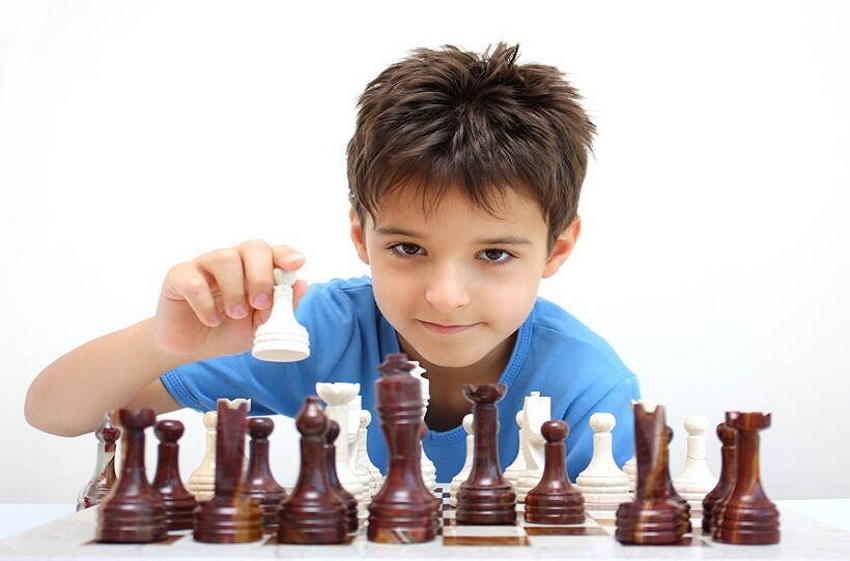Chess is more than a game. It is a powerful tool for boosting mental skills. Learning and practicing chess can benefit players of all ages in several ways.
Chess is a strategy game. It is equivalent to winning a war without lifting a weapon. This requires the ability to apprehend the consequences, and become intuitive and alert. Right from how to set up a chess board to developing the pieces, attacking, and defending till the time you checkmate, your mind is constantly at work.
This article explains how chess helps develop mental skills that are useful while playing the game and otherwise.
1. Improves Focus
Chess requires full attention. Each move needs careful thought, and players must keep track of every piece on the board. Losing focus can lead to mistakes. This demand for attention helps players improve their focus. As players get better at chess, they also get better at focusing on tasks. In school or work, better focus can lead to improved results, as fewer mistakes are made and tasks are completed more efficiently.
2. Enhances Problem-Solving Skills
In chess, every move counts. Players face several situations where they must decide the best move to make. Sometimes, this involves defending a piece; other times, it means planning an attack. Solving these challenges requires thinking ahead. It trains the brain to handle problems in real life. The skills developed in chess include evaluating choices, foreseeing consequences, and deciding on the best action. These skills are useful in everyday problem-solving.
3. Encourages Strategic Thinking
Chess is a game of strategy. A player must plan several moves to build a successful attack or defense. To do this, players must think critically and stay flexible. They learn to develop plans, adjust them as needed, and anticipate the opponent’s moves. By practicing these skills, chess players learn to think strategically. This skill is valuable in many situations, such as setting goals, managing time, or planning for the future.
4. Boosts Memory
Memory plays a big role in chess. Players have to remember how each piece moves, possible openings, and their opponent’s past moves. Over time, experienced players build a mental library of moves and strategies. By relying on memory, players improve their recall abilities. Better memory helps people in daily life, whether it’s remembering a task list, studying for a test, or recalling a person’s name. In fact, studies have shown that playing chess regularly can help improve both short-term and long-term memory.
5. Enhances Pattern Recognition
In chess, certain patterns appear frequently. For example, specific moves or positions repeat across different games. Players who recognize these patterns can respond faster and make better moves. Pattern recognition is not just about spotting winning moves; it also includes recognizing threats and planning counter-moves. Developing this skill can help in other areas where patterns appear, such as math, reading, and even in observing social cues in conversations.
6. Encourages Logical Thinking
Chess is based on logic. For each move, players consider how it impacts the game. They must think in steps, often asking questions like, “If I move this piece, what will happen next?” This habit of thinking logically and examining cause and effect becomes second nature with practice. Logical thinking is helpful in many fields, such as math, science, and everyday decision-making. People who are good at logical thinking tend to solve problems faster and make better choices.
7. Builds Patience and Discipline
Chess teaches players to slow down and think before acting. Impulsive moves usually lead to mistakes. This game rewards patience and careful planning. By learning to be patient, players develop self-control, a skill that can help them handle stress and avoid rushed decisions in real life. Chess also requires practice and dedication to improve, so it teaches discipline. Players learn that progress takes time and effort, an important lesson that applies to learning any new skill or working towards goals.
8. Increases Creativity
Although chess has rules, it also allows room for creativity. There is no single “right” way to play; players often find unique solutions and moves. This need to create and adapt fosters creativity. Creative thinking in chess is about finding unexpected moves,. It includes reinventing new strategies, and seeing the board from a fresh perspective. The ability to think creatively is useful in problem-solving, art, writing, and other fields that require innovation.
9. Teaches Resilience and Learning from Mistakes
Chess involves wins and losses. Every loss is an opportunity to learn. By reviewing their games, players can see what went wrong and how to improve. This process teaches resilience—the ability to keep going even after setbacks. In chess, as in life, mistakes are a part of learning. Players who become resilient can apply this skill in school, work, or sports, where setbacks are common. They learn to see failure as a lesson, not as an end.
10. Improves Planning and Decision-Making
In chess, a player cannot just react to an opponent’s move; they must plan several steps ahead. This practice of looking ahead builds planning skills. Players also learn to evaluate options and choose the best one, which improves decision-making. Both planning and decision-making are essential life skills, whether one is organizing a project, setting personal goals, or choosing between different options.
11. Strengthens Both Sides of the Brain
Studies show that chess activates both the left and right sides of the brain. The left side is responsible for logic and analysis, while the right side handles creativity and intuition. Chess requires players to use both, as they must calculate moves while also recognizing patterns and using imagination. Strengthening both sides of the brain helps players become better at thinking flexibly, handling complex tasks, and making well-rounded decisions.
Kindly refer to how to play chess in case you don’t know the chess rules.
Conclusion
Playing chess offers more than entertainment. It develops mental skills that benefit people in all areas of life. From improving focus and memory to teaching patience and resilience, chess exercises the brain in unique ways. These skills are valuable in school, work, and personal growth. Learning chess may take time, but the mental benefits are worth the effort. For anyone looking to boost their brainpower, chess is a practical and enjoyable way to do so.
For those who are planning to learn how to play chess, online chess classes are an excellent option.




